Streptococcus pneumoniae in 2019
- 760 S. pneumoniae invasive disease cases reported
- 40% had isolates resistant to at least one antibiotic
- 19% resistant to penicillin and 0% resistant to amoxicillin (recommended first-line antibiotics)
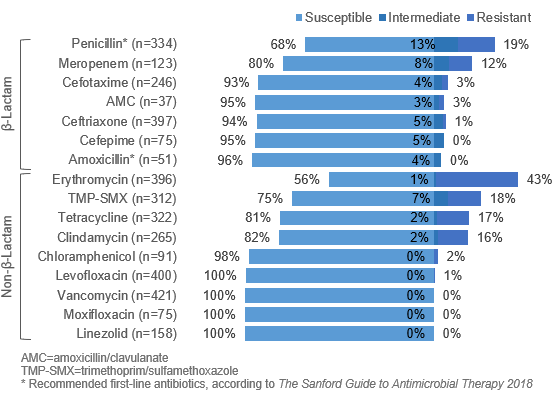
Staphylococcus aureus in 2019
- 58,368 isolates reported
- 38% resistant to oxacillin (i.e., MRSA) (susceptibility testing now done on oxacillin rather than methicillin)
- 0% resistant to vancomycin
(recommended first-line antibiotic when resistant to oxacillin)
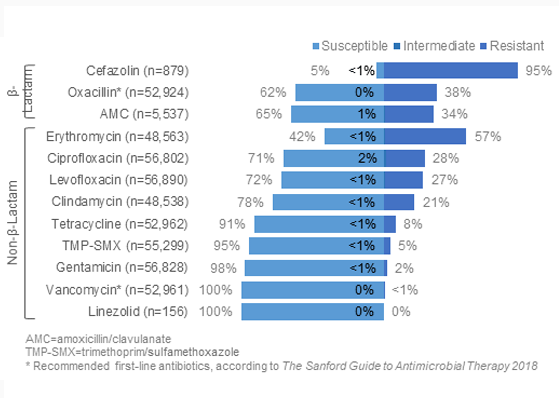
Acinetobacter species in 2019
- 511 isolates reported
- 11% resistant to one or more carbapenems (doripenem, ertapenem, imipenem, meropenem)
- 10%-13% resistant to recommended antibiotics: cefepime, ceftazidime, ampicillin/ sulbactam
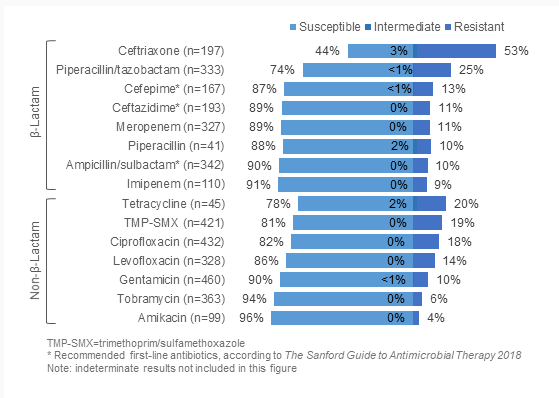
Escherichia coli in 2019
- 20,957 isolates reported
- 0.2% resistant to one or more carbapenems (i.e., CRE)
- <1% resistant to imipenem or meropenem
(recommended first-line antibiotics)
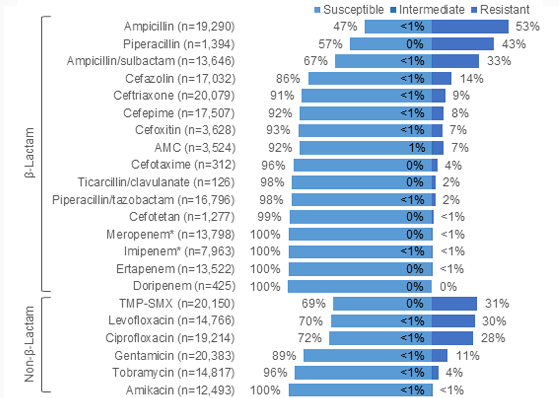
Klebsiella species in 2019
- 5,918 isolates reported
- 0.8% resistant to one or more carbapenems (i.e., CRE)
- <1% resistant to imipenem or meropenem
(recommended first-line antibiotics)
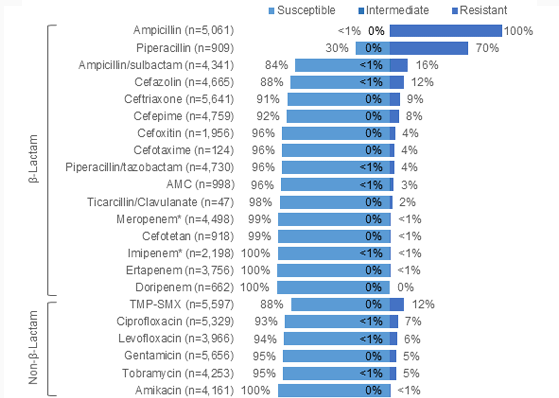
Enterobacteriaceae in 2019
- 28,166 isolates reported
- 0.6% resistant to carbapenem (i.e., CRE)
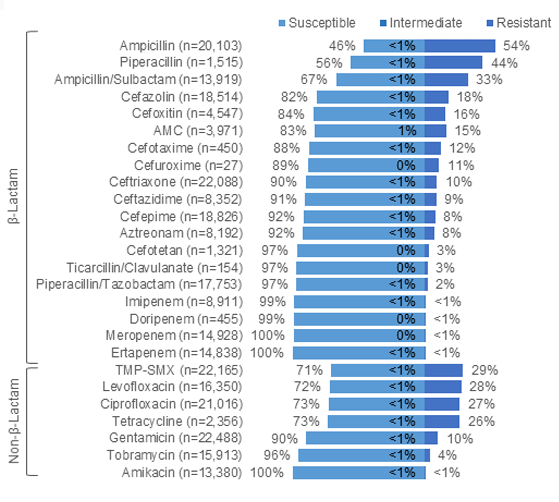



Connect with DOH